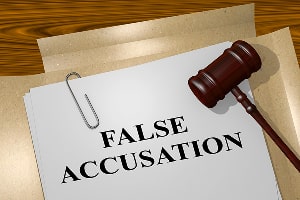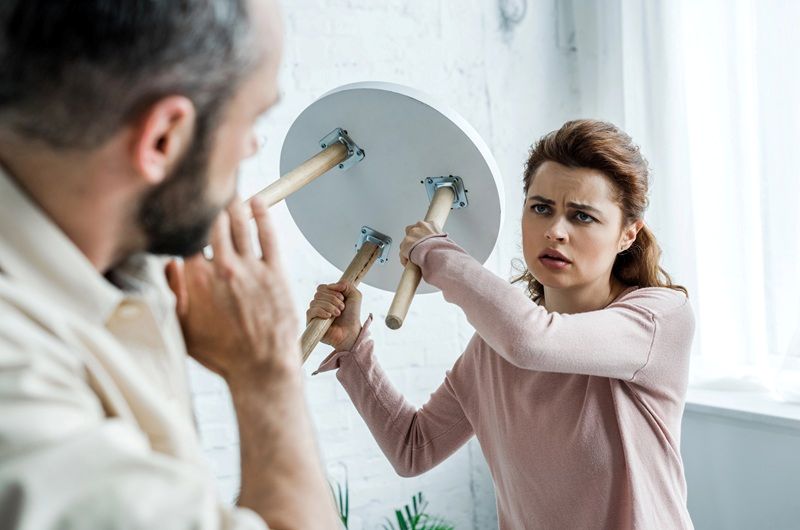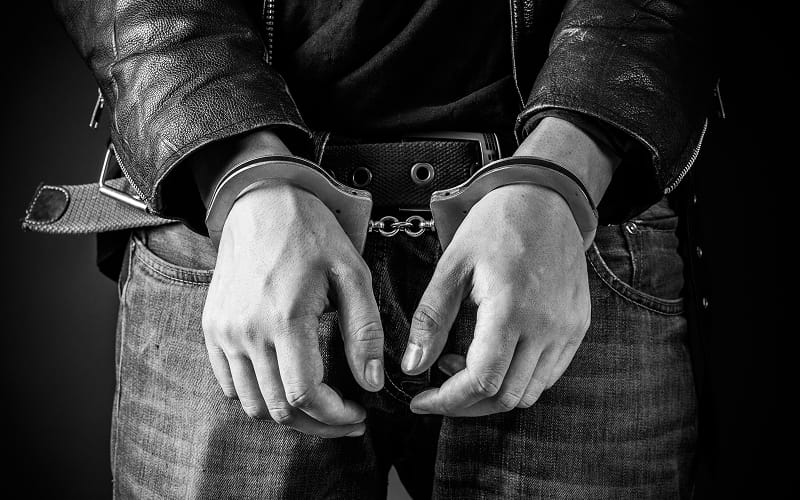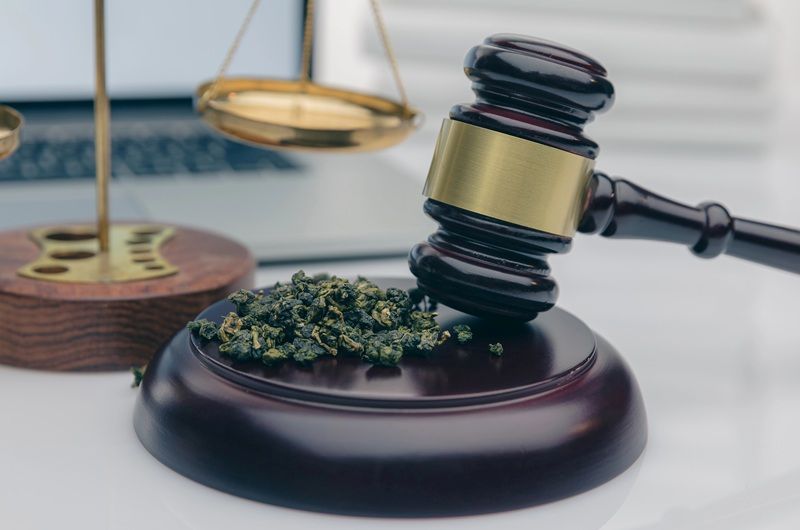Consent functions like a green light at an intersection it must be clear, continuous, and not forced. In a rape case, the law carefully examines whether both parties willingly participated. Understanding these legalities in Virginia can help you anticipate what the prosecution may argue.
This article breaks down Virginia’s consent laws and their role in rape cases. It also highlights the potential penalties for a conviction and explores legal defenses that may help you challenge the charges.

Understanding Consent Under Virginia Law
Rape charges in Virginia carry serious legal consequences, and consent plays a key role in these cases. Several circumstances can establish a lack of consent. Understanding these situations helps you recognize what the prosecution may use to build its case.
Impairment Due To Alcohol Or Drugs
An individual cannot give valid consent if they are physically helpless, unconscious, or unable to understand the nature of the act. The state clarifies that engaging in sexual activity with someone incapacitated due to substances may result in rape charges.
Use Of Force, Threats, Or Coercion
Intimidation, threats, or force invalidate consent under Virginia law. Even without physical resistance, the court may rule against the defendant if the accuser feared harm. Prosecutors may use evidence of injuries, witness statements, or prior interactions to support these claims. Any form of coercion that pressures someone into an act can lead to criminal charges.
Age Considerations
Virginia law sets the age of consent at 18, meaning individuals under this age cannot legally agree to sexual activity with an adult. Engaging in sexual relations with a minor, even if they willingly participate, can result in statutory rape charges. However, Virginia law distinguishes between different age groups when determining criminal liability.
- Sexual activity with a child under 13 is always considered rape since they cannot legally consent.
- If a minor engages in intercourse with a consenting 13- or 14-year-old and is three or more years older, Virginia law classifies it as a Class 6 felony.
- If the victim is 13- or 14-years-old, and the offender is less than three years older, the offense is typically a Class 4 misdemeanor.
- Va. Code § 18.2-371 classifies sexual activity between an adult and a 15-, 16-, or 17-year-old as a Class 1 misdemeanor.
Regardless of the specific charge, courts do not recognize consent as a valid defense in these cases. The law assumes that minors lack the capacity to make informed decisions about sexual activity.
Consent Withdrawal & Post-Event Accusations
A person may consent initially but later change their mind. If the other person continues after they withdraw consent, the law considers it rape. Courts also examine when accusations arise and whether factors like regret, pressure, or miscommunication play a role.
Understanding these legal definitions matters because Virginia imposes severe penalties for rape, including lengthy prison sentences and lifelong restrictions. Knowing the potential consequences helps you recognize what is at stake and why a strong legal defense is essential.
Potential Consequences Of A Rape Conviction
A rape conviction in Virginia brings severe legal and personal consequences, making it difficult to rebuild your life. Courts impose harsh penalties, with some offenses requiring mandatory minimum sentences, including:
- If the victim is under 13 and the offender is over three years older, the law mandates at least 25 years in prison.
- If the offender was 18 or older at the time of the offense, and the victim is under 13, the punishment includes a mandatory life sentence.
- If the offender has a prior conviction for violent sexual felonies such as rape, forcible sodomy, or aggravated sexual battery, the court mandates a life sentence.
In addition to incarceration, a conviction results in mandatory registration as a sex offender. This designation can lead to lifetime restrictions, including limitations on residency, employment, and community activities.
These consequences highlight the need for a firm defense. Understanding your legal options is important, as the right approach can influence the outcome of your case. An experienced attorney can assess the charges, explain potential outcomes, and help you build a strong strategy.
Effective Defenses Against The Charge
A rape charge does not mean an automatic conviction. The prosecution must prove guilt beyond a reasonable doubt, and several strategies can challenge their case. Below are the most common defenses to dispute these allegations and weaken the prosecution’s argument.
Lack Of Evidence
The prosecution must present strong evidence to prove guilt. If the case rests solely on accusations without physical evidence or witness testimony, the defense can challenge its validity. Weak or conflicting proofs may lead the court to dismiss the case or issue an acquittal.
False Allegations

Personal motives such as revenge, regret, or outside pressure can lead to false accusations. Defense attorneys look for inconsistencies in the accuser’s statements and explore possible reasons for dishonesty. Furthermore, they can analyze evidence, such as messages or past interactions, to challenge the claims.
Consent As A Defense
If both parties willingly engaged in the act, the defense can argue that no crime occurred. Messages, phone records, and witness statements can help establish that the accuser participated voluntarily. Attorneys may also challenge inconsistencies in the accuser’s statements regarding their level of agreement.
Mistaken Identity
Misidentification may occur due to poor lighting, memory gaps, or external influence. DNA evidence, alibi witnesses, and surveillance footage can help challenge the accusation. This defense becomes especially relevant when allegations surface long after the alleged incident.
A criminal defense firm understands these strategies and knows how to apply them effectively in court. With their support, you can protect your rights, challenge the allegations, and work toward a more favorable outcome.
Fairfax County Criminal Attorneys Defends You In Court
At Fairfax County Criminal Attorneys, we provide strong legal defense for those facing rape charges in Virginia. We examine case details, challenge weak evidence, and expose inconsistencies in the prosecution’s claims. Our team diligently works to protect your rights and ensure a just trial.
Moreover, we understand the serious consequences of a conviction, from prison time to lifelong registration as a sex offender. Our attorneys build strategic defenses based on the facts, using evidence, witness testimony, and legal arguments to fight the charges. We also negotiate when appropriate, seeking reduced penalties or case dismissals.
Beyond legal defense, we address concerns and frequently asked questions (FAQs) to help you understand your situation. Knowing your rights and options can make a difference in how you approach your case. With the right legal guidance, you can make informed decisions that protect your future.
FAQs About Rape Charges
Rape accusations can lead to serious consequences and raise legal questions. Understanding the nuances can help clarify how Virginia law defines consent, incapacity, and liability. Below are common questions about rape charges and legal proceedings in Virginia.
How Does Virginia Define Physical Helplessness In Rape Cases?
Physical helplessness means unconsciousness or any condition that makes a person physically unable to communicate their unwillingness to act. The law also requires that the accused knew or should have known about the victim’s condition. Engaging in sexual activity with someone in this state can result in rape charges, even without force.
Can You Face Charges If Both Parties Were Intoxicated?
Yes, if the prosecution proves the accuser was incapacitated, the court may still charge the other party with rape, even if both were drinking. The law considers whether the accuser was too impaired to understand or participate in the act. Judges and juries review witness testimony, video footage, and toxicology reports to assess their condition.
Can You Reduce Rape To A Lesser Charge?
Courts may reduce a rape charge through plea negotiations or insufficient evidence. Prosecutors may offer lesser charges, such as sexual battery, which carry lighter penalties but still result in a criminal record. A defense attorney can evaluate the case and determine if a charge reduction is possible.
Virginia law defines consent and impairment in strict terms, making rape charges a serious legal matter. Certain circumstances, such as intoxication, coercion, and age, can determine whether the law considers an act unlawful. A conviction can lead to prison sentences, mandatory sex offender registration, and lasting personal consequences.
However, the prosecution must prove guilt beyond a reasonable doubt. Defense strategies, including challenging weak evidence, disproving false allegations, and proving consent, can strengthen your case. At Fairfax County Criminal Attorneys, we can help you understand your options and protect your future.




